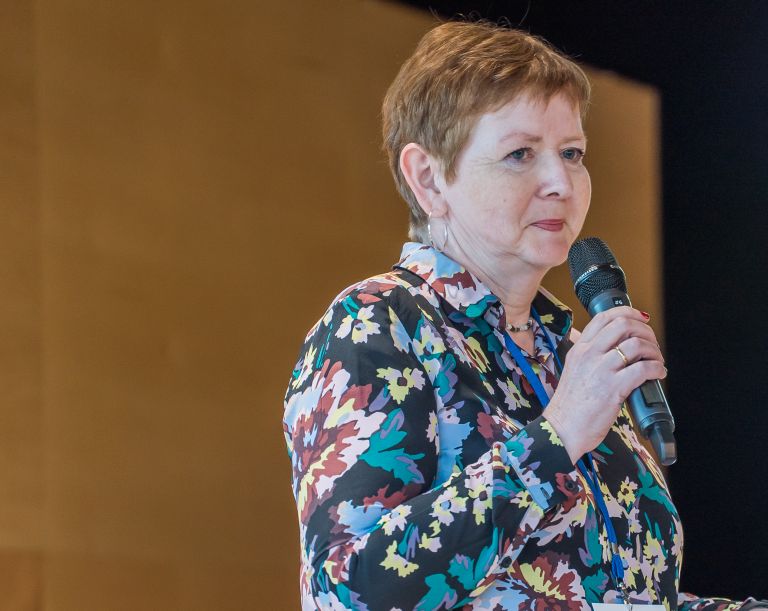No Going Back: Power of Belonging – Our Response to Covid-19
15/09/2020

Shifting the focus of mental health investment to people, connection and kindness
Elizabeth Simpson, CEO Manchester Mind
Manchester Mind’s purpose is to support better mental health for everyone through delivering a wide range of services including support, advice, information and training.
26th February 2020 was my last ‘normal’ working day. I was sitting in a meeting when we heard about a children’s centre which had been locked down. The reality of what was to come dawned. The next month passed in a flurry of risk assessments, continuity plans and IT equipment purchases. This was followed by extensive conversations on how staff can safely deliver services from home whilst ensuring they remained accessible for the people that needed them.
However, as we talked more, we realised that we wouldn’t be able to meet everyone’s needs and this continues to be a concern.
My last day in the office was 23rd March. We went in to gather up equipment, folders and of course the plants – mustn’t forget the plants.
On that day, one of our volunteers came into the building angry and confused, frightened and inconsolable; they had just been through a detox and had come out to find all support gone. No groups, no clear information about how ongoing support would be provided, even the volunteering opportunity, which had done much to occupy their time, had also been pulled away. They knew maintaining abstinence would be an impossibility and subsequently their mental health would deteriorate. Unfortunately, they were right on both counts. For me, it was a clear and stark reminder about how devastating this was likely to be for many people.
We had no choice over the changes that we needed to make, and while there have been positives, we know that these changes have not been helpful to some of the people we have been working with. At times, change can happen slowly and allow for adjustments. This has not been possible with our response to Covid-19. Through necessity, it was rapid, and adjustments were made quickly by staff and also, in some ways, by the people who needed our support.
Some of those changes have been positive and long-lasting, and will enhance what we do and the way that we do it. We have learned a lot. Creating a sense of belonging, so people felt safe to contribute and build relationships, has always been a focus for us at Manchester Mind. We had always felt that we needed to be ‘open’ and that all our services must be face-to-face, we couldn’t possibly do the same quality of work by phone or other remote options. We were wrong. It can and it has been done. Yet, we have to remember that this way of delivering our services is not for everyone. The digital sphere is not a panacea and we need to be careful going forward that it remains an add-on, not a replacement for our face-to-face services.
Offering our services digitally has definitely improved our reach and accessibility across the city, but we know that there are people we are missing. This is partly because of the well documented difficulty with digital accessibility, but there is more to it than that. It can provide a real barrier for the conversations we need to have. Going forward, there is more work to do to understand how we can manage this gap.
What does the pandemic mean for our mental health generally and for how services can be configured for the future? It is certainly not enough to aim for recovery when we were already behind and the need will be greater. This pandemic now has to be the catalyst to ‘build back better’. The narrative around mental health provision has to change. It has to be about acknowledging that the medical model alone doesn’t work for most people. Mental health problems are more predominant in areas where there are higher levels of deprivation and social isolation and disconnection from communities. We cannot continue to ignore this socio-political context. Covid-19 has shone an even brighter light on these entrenched inequalities. We must acknowledge that these inequalities can contribute to poor mental health, and that tackling them should be part of an overall strategy for improving individual and community mental health.
Mental health service provision has to be about the whole person…
Firstly, in terms of services, the emphasis should be on ensuring that lived experience is a meaningful part of designing, commissioning and evaluating services. Secondly, statutory and voluntary sector services need to better work together and build connections to provide a more systematic and complementary offer. Yes, this already happens in parts, sometimes planned, sometimes more to do with local and grassroots relationships. If all services were commissioned in a way that looks to wider outcomes and that take into account the needs of the whole person – how much more effective would that be? It is not all about funding, although some of it is, it is more about commissioning services in connection with what else is there, how services can connect with one another and the expectation that they will.
Medication and therapeutic interventions will work for some people by themselves but if a person’s environment is one where they are lonely and isolated, or their housing is poor or fragile or even none existent, or there are excruciating choices to be made on a daily basis due to lack of money or debt, or if people are faced with stigma – then those medical interventions will be less effective. We need to shift the focus of mental health investment to communities, to prevention and early intervention. This has been on the agenda for years, but now is the time to see it happen. If this pandemic leads to systematic changes in provision, it needs to be about this. The VCSE must be an important part of the solution.
There is nothing here that hasn’t been spoken about, maybe even planned for. The clear focus on inequality and health makes a new way forward essential and inevitable. The VCSE always has been a vital contributor and will often be the first port of call for people who experience the social impacts of poor mental health, but I am not sure it has always been acknowledged as an essential part of wider service provision, and it needs to be.
The devastating loss of life, impact of lockdown and the inevitable recession will have deep and lasting consequences on all our lives. It is expected that there will be a surge in mental health need across the population and that need will predominately fall between primary and secondary care. It’s not a new gap, but may become greater if it is not addressed. Some of what people will be feeling due to the experiences of this pandemic will be natural distress and it is important that we do not rush to medicalise it. That isn’t to ignore what people are dealing with, but to provide accessible and non-medical community based services.
We need to build a world where we recognise the power of belonging and the positive impact it can have on a person’s mental health, wellbeing and ability to cope.
We all have a part to play in making the necessary large-scale changes that Covid-19 has made even more necessary. We have to build services which support connections into communities and connections between organisations, and focus on building kind relationships. We cannot go back to the same frustrations as before. The stakes are higher now. Everyone deserves to be supported in their mental health needs, and we all have a part to play in building that future. This should be the new normal.
